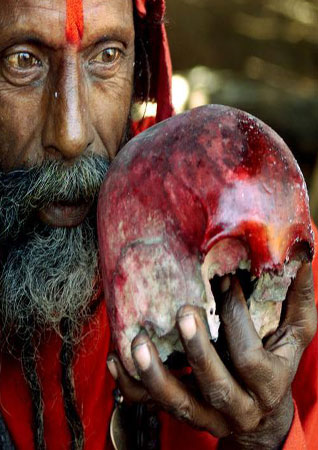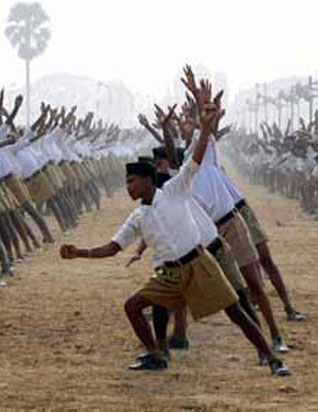Current Events
India Suffering From Morning-After Blues
JOHN ELLIOTT, Newsweek
The current disillusionment with India’s new government is not surprising given the images built up in the past by prime minister Narendra Modi and finance minister Arun Jaitley.
Modi, a powerful regional politician, blasted his way to power in a presidential style campaign with the theme that he alone could save India from its declining economic record and international image. Jaitley, a highly rated lawyer, spent years getting increasingly angry on television programmes and elsewhere as he barked and bit his way into the Congress-led coalition’s failings as if he knew what ought to have been done.
Inevitably, neither man has lived up to the implicit promises of their self-confident performances before and during the general election campaign.
Jaitley produced a drab budget speech on July 10, 2014 that one leading commentator, Swaminathan Aiyar, dubbed (referring to the last finance minister) a “Chidambaram budget with saffron lipstick.” I thought that a bit unfair on Paliannapen Chidambaram, who did manage to put some vision and inspiration into his speeches, even if he wasn’t able to deliver the visions afterwards.
Despite taking a firm line on government administration issues where he is trying to introduce efficiency, Modi has yet to display the sure touch on policy that his reputation indicated. Indeed, it looks as if he had underestimated the difficult if not impossible task of transferring his Gujarat chief minister style to the far more complex national and international arena of New Delhi.
It is of course far too early to make sweeping judgements, but so far he has failed to deliver on his Obama-style “Yes we can” message, to which he added, “Yes we will do,” last August.
I’ve been out of India since just before Budget Day and these views are culled from people I have met and talked to in Washington DC as the budget was being delivered, and in the UK, as well as reading the India news and comment.
In the policy think tanks around Washington’s Dupont Circle, analysts thought the budget good in parts, but were understandably disappointed that Jaitley did not take a clear stand on subsidies and against a damaging policy of retrospective corporate taxation pursued by the last government (initially over a Vodafone take-over deal and then affecting other companies).
In the UK, there is uncertainty about how new the Modi approach will turn out, while the British prime minister David Cameron is busy fawning on the leadership of both China and India. To placate Beijing, he is failing to honor pledges he has given in the past to defend democratic development in Hong Kong, which is now under attack from Beijing, and he has this past week gained publicity by promoting an Indian-origin declared right-wing Modi supporter as a Treasury minister.
I’ve been asked more about the treatment of women, rape and the caste system than I have about economic performance. “Can Mr Modi change that?” people want to know, referring to the non-economic subjects – including the use of child and slave labour in brickfields that BBC correspondent Humphrey Hawksley has been publicizing on television.
Of course Modi can’t change everything, though the 10-year time frame that he has said he needs as prime minister should lead to a revamping of India’s police forces and legal system, plus education, so that police and judges do their jobs on time and education weans people away from the worst excesses of the caste system and persecution of the poor.
‘A LOT OF RED INK’
To return to the budget, Chaitanya Kalbag, a former senior Reuters editor, neatly summarized the lack of new thinking when he wrote a few days ago:
“So far, Modi and Jaitley have meekly accepted a string of programmes and targets set by the [previous Congress-led] United Progressive Alliance government. If India was a failing corporation, the new CEO and CFO seem to be content to inherit a balance sheet smudged by a lot of red ink.
We hoped for big-bang reforms. Instead, subsidies continue apace.
The National Rural Employment Guarantee Scheme sails on, leaks and all. The new government says it is committed to food security – there is no attempt to trim the swingeing UPA pledge to give two-thirds of our population cheap rice and wheat. Jaitley has ‘accepted’ the challenge set by his predecessor of an almost impossible fiscal deficit target of 4.1 percent of GDP this year”.
Swapan Dasgupta, a self-declared staunch Modi admirer, has similarly questioned Jaitley’s decision not to ditch the last government’s over-optimistic figures on the economy, writing:
“There are things that just don’t add up.
Jaitley may have preserved the honour of his Finance Ministry by not rubbishing the entire past, but what sort of signal has it sent to the bureaucracy that will oversee the big changes Modi contemplates?
Continuity has its pitfalls and the most obvious one is that the Modi dispensation is in serious danger of being led by the nose by a bureaucracy that is most at ease with perpetuating the status quo through control. Certainly the main body of the Budget speech conveyed the unmistakable impression of having been penned by someone who was completely impervious to its political rationale and made the seamless transition from UPA to NDA.”
Dasgupta seemed to be suggesting that Jaitley had accepted the views of his finance ministry bureaucrats’ and said that Modi’s efforts to motivate and directly drive senior bureaucrats, Gujarat-style, would not work until “babudom grasps the reality of political change.” At present, he says, “there is no indication of such a realization,” and the Indian bureaucracy still thinks the achche din [good days] has been never-ending”.
On the positive side, Jaitley did indicate a new focus on economic growth, with the prospect of urgently needed agricultural and taxation reforms.
The few details he announced included an increase in foreign direct investment limits in defence equipment manufacturing and insurance companies from 26 percent to 49 percent, and a boost for government spending on highways. He also repeated an announcement made more than once by the last government that FDI in insurance companies, which needs parliamentary approval (unlike defence and other areas), would be raised from 26 percent to 49 percent.
Analysts in Washington were disappointed that the defence figure had not been raised to 51 percent, because that would have allowed US and other companies such as Boeing, Lockheed and Raytheon to have a majority share in India-based companies.
The 49 percent limit was welcomed by most of India’s private sector defense manufacturers because they understandably want to have a chance to develop Indian capability if the defense industry is at last to be opened to private sector involvement.
Meanwhile, Modi seems to be more willing to be tougher and more abrasive on the Bharatiya Janata Party’s (BJP) Hindu nationalist interests and causes than on economic policy and sorting out the way that India is run.
In budget week, he appointed Amit Shah, his controversially tough and apparently ruthless political henchman as president of the BJP, despite an on-going criminal investigation into Shah’s alleged involvement in Gujarat police killings and phone tapping. Shah has been close to Modi since they were both teenagers in the [right-wing, fundamentalist, Nazi militia-style] Rashtriya Swayamsevak Sangh (RSS), which lays down doctrine and played a large part in the recent election campaign by providing thousands of volunteers.
There have also been moves to have a new look at India’s history and rewrite education books, as the last BJP-led government did in the early 2000s, along with other initiatives aimed at adjusting India’s approach to culture so that it fits with Hindu nationalist views.
It’s easier, of course, to do these things than it is to reform the way that India and its economy is run.
The government, however, won its overwhelming general election victory because people want economic and other changes, not because they are devoted fans or followers of the BJP’s long-term nationalist ambitions.
[John Elliott’s new book is IMPLOSION: India’s Tryst with Reality (HarperCollins, India). ]
[Courtesy: Newsweek. Edited for sikhchic.com]
July 23, 2014
Conversation about this article
1: Kaala Singh (Punjab), July 23, 2014, 1:47 PM.
The Indian "economic miracle" is a myth which has been over-blown. This myth was systematically created by media campaigns and stock market manipulations, but did not stand the test of time, otherwise how can one explain the GDP growth rate that was claimed to be 10% has now fallen to 2-3%? The truth is that there is no inherent strength in the Indian economy which is driven by research and innovation and creating real wealth. It's a shopkeeping nation where petty traders thrive on hoarding and fleecing the common people. The big companies too thrive on exploitation of natural resources and the general population. The Government instead of acting as a regulator acts as a middleman to facilitate the exploitation. The end result is that wealth remains in the pockets of a few and the rest remain as poor as ever.
2: Dalvinder Singh Grewal (Ludhiana, Punjab), July 30, 2014, 9:43 PM.
India has got the change it deserved; from a loosely controlled republic to a tightly controlled dictatorship. All the powers are being concentrated in one man and his team built in the neo-Nazi background that is RSS. Good days are for Modi and RSS and not for others. Majority -- the Hindus -- have got their rule and they are going to rule with a firm hand. Communal riots are being planned and steered systematically; latest being in Saharanpur. India's minorities have to sit tight and bear the pangs of gradual neglect. The general public has to struggle hard to cope with the increasing prices. Crime within and border crossings are on the increase, putting the safety of the common man and the nation in danger. Business is going to pass into the hands of a chosen few businessmen; latest being the privatization of airports. This and much more is the "good for the people and the country" from the new regime. Sikhs have to seriously think about their future as they are caught between two devils.




